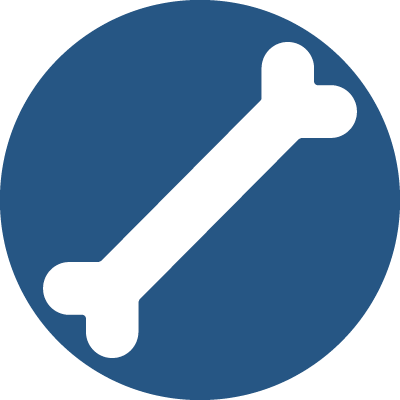
The Bones
You may have heard members of your CF team talk to you about your bone health. Bone mineral density is an area of concern for someone with cystic fibrosis because low bone density is found in 40-70% of adults with CF and it is something that should be monitored regularly. If you have CF, you are at risk for developing osteopenia or osteoporosis (thinning of the bones) which can lead to bone fractures, bone deformities, and bone pain. There are many reasons why this may happen including malnutrition, vitamin deficiencies, chronic inflammation, low body weight, low sex hormones, and steroid use. In your yearly visit, you will be asked to have a bone mineral density scan called a DEXA (dual energy x-ray absorptiometry) scan to check your bones. As well, we do blood work to look for any possible cause for low bone density that may be corrected with medication.
Studies have shown that, on average, CF patients have 10% lower bone mineral density compared to other people of the same age and height. Because individuals with CF are living longer now, this condition has become more relevant, as it tends to manifest later in life. Also, physicians are more aware of osteoporosis in CF patients and are looking for this condition more frequently than they were before. Idividuals with CF with thin bones have a much higher risk of breaking bones. Staying active with regular exercise not only helps improve your lung function, it also improves your bone density. The more force you apply to the bones, the stronger they become. Also, it is important to take vitamins, especially Vitamin D and calcium (in foods or supplements), to ensure adequate blood levels so that your body has the building blocks necessary to lay down new bone.

